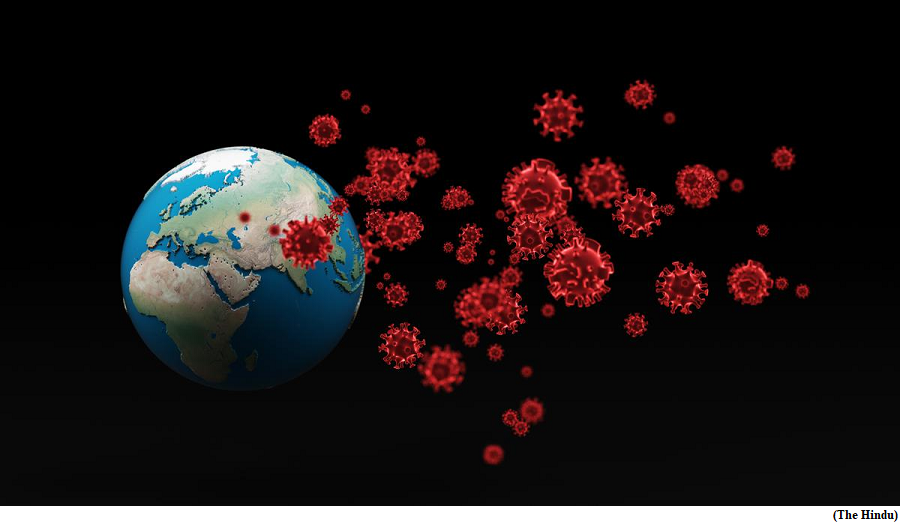With climate change, tackling new disease scenarios (GS Paper 3, Environment)

Context:
- In its latest report released in March, the Intergovernmental Panel on Climate Change (IPCC) delivers a stark warning: climate change heightens the global risk of infectious diseases.
- The close relationship between climate and disease is being demonstrated every year. For instance, the periodicity of mosquito-borne disease outbreaks no longer follows expected patterns. Dengue manifests in two to three peaks throughout the year.
Details:
- Variability in temperature, precipitation, and humidity disrupt disease transmission cycles. These also alter the distribution of the vectors and animal reservoirs that host the parasite.
- Heat has been proven to interfere with the genomic structure of pathogens, changing their infectivity and virulence.
Broader spectrum of infectious agents:
- Habitat loss forces disease-carrying animals to encroach upon human territory, increasing the risk of human-animal interaction and the transfer of pathogens from wildlife to humans.
- Viruses which do not harm animals can be fatal for humans. Nipah virus, which has been causing outbreaks in Kerala for many years now, is a good example.
- An analysis of 2022 published in Nature Climate Change warns that humans now face a broader spectrum of infectious agents than ever before. Over half of all-known infectious diseases threatening humans worsen with changing climate patterns.
- Diseases often find new transmission routes, including environmental sources, medical tourism, and contaminated food and water from once-reliable sources.
Transforming ecosystems:
- While ecosystems shape local climates, climate change is transforming ecosystems. This dynamic introduces invasive species and extends the range of existing life forms.
- Both these trigger upheavals in ecosystems that are complex and confound ecologists and epidemiologists to predict outbreaks.
Surveillance and reporting:
- Changed disease scenarios require a revision of strategies to detect and deal with them. Over the past two decades, India has improved its reporting of outbreaks.
- The Integrated Disease Surveillance Programme (IDSP) was rolled out in a few States in 2007. From reporting 553 outbreaks in 2008, it last reported 1,714 in 2017.
- It was phased out in favour of a new, a web-enabled, near-real-time electronic information system called Integrated Health Information Platform (IHIP). IHIP was launched in seven States in 2018. It added 20 additional disease conditions over IDSP’s 13 and could present disaggregated data to its users.
One Health:
- The current design of surveillance is not adequate for the emerging disease scenario. Mitigating the spread of climate change-induced diseases requires safeguarding ecosystems, curbing greenhouse gas emissions, and implementing active pathogen surveillance.
- A unified approach, termed One Health which integrates monitoring human, animal, plant, and environmental health, recognises this interconnectedness.
- This approach is pivotal in preventing outbreaks, especially those that originate from animals. It encompasses zoonotic diseases, neglected tropical diseases, vector-borne diseases, antimicrobial resistance, and environmental contamination.
- India must launch One Health and infectious disease control programmes by building greater synergies between the Centre and States and their varied specialised agencies.
‘Disease x’ and beyond:
- Globally, there is an obsession with the enigmatic “disease X,” but it is the familiar annual cycles of known agents such as influenza, measles, Japanese encephalitis, dengue, diarrhoea among others that will continue to test the public health system.
- Climate change is not limited to infectious diseases. It also exacerbates injuries and deaths from extreme weather events, respiratory and cardiovascular diseases, and mental health issues.
- The road ahead demands concerted efforts, not just to adapt but also to proactively safeguard our planet and its inhabitants.


